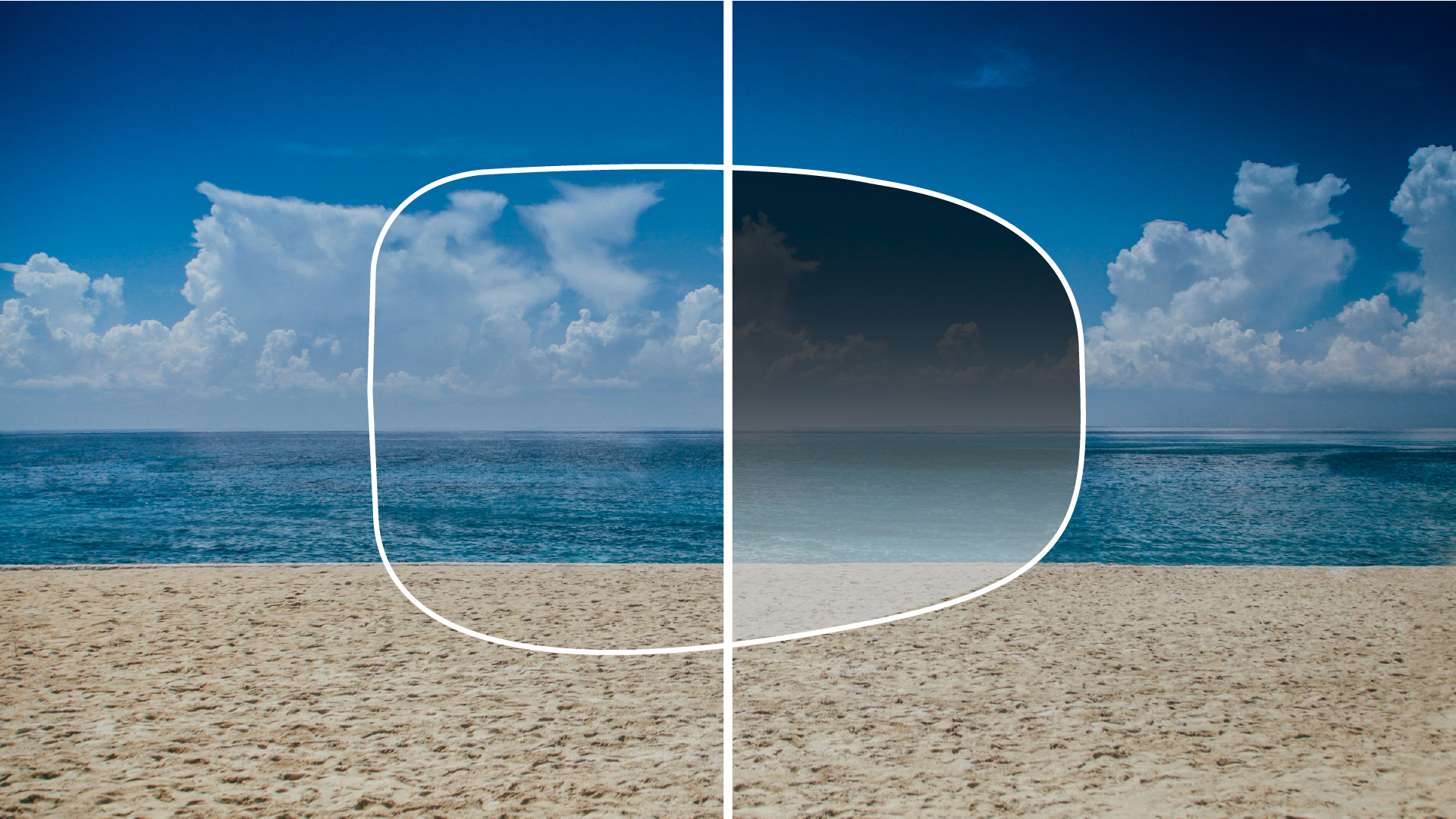
Sometimes, when you are outside, reflected light can obstruct your view, which can be extremely irritating. A sunny day could, for example, result in particularly blinding beams of light reflecting off the waves as you walk along the beach. Alternatively, you may have noticed that a wet road was reflecting light off of nearby vehicles and wet surfaces which made it difficult for you to see. The effects of this can be very harmful to your vision and cause eye strain, for which polarised lenses can provide protection. Glare from horizontal surfaces is blocked by a laminated filter.
Our stylish frames can be customized with polarised lenses. Due to the possibility of delamination, the only frames they are not available with are semi-rimless or rimless frames.
What are Polarised Lenses?
When scattered rays of light reflect off smooth and shiny surfaces like a mirror or a body of water, they bounce off in a horizontal direction and converge to become more intense and brighter. This more intense light is called glare. Glare reduces visibility, and prolonged exposure may cause eye strains, headaches, or even loss of vision. Polarised lenses are designed to reduce glare from reflective surfaces and protect your eyes from harmful UV rays.
How Polarised Lenses Work
The lenses of polarised or anti-glare sunglasses are coated with special chemicals called polarizers. On a microscopic level, these polarizers act as vertical slits that filter out horizontal light and allow only vertically oriented light to pass through, thus limiting the amount and intensity of light that reaches the eyes. You can think of these polarizers as bouncers, stopping uninvited guests from attending a party.
Benefits of Polarised Lenses
Beyond cutting out horizontal light and reducing glare, polarised sunglasses are an excellent eyewear choice. Here are some extra reasons why you have to get one from us:
-
Polarised glasses improve contrast and clarity. The combination of these two gives you a perfect sense of distance, depth, and definition.
-
Polarised sunglasses improve your visual comfort and reduce eye strain by decreasing the amount and intensity of light reaching the eyes.
-
The right pair of polarised sunglasses can serve as an additional fashion accessory and help complement your personal style a Polarized sunglass.
When to Use Polarised Lenses
Polarised glasses are a must-have in a number of situations. Here are some scenarios where you definitely want to be wearing a pair of polarised lenses.
Driving
Going for a drive right before sunset can be very difficult, with glare from the windows of other cars and the road impairing your vision. Wearing polarised glasses while driving on sunny days may help you reduce the glare and prevent motor accidents.
Fishing and Boating
Intense reflections from water surfaces getting into your eyes while boating or fishing can be distracting. Polarised glasses help you cut through the glare, allowing you to see clearly and deeper into the water.
Winter Sports
Partially polarised goggles are a requirement in winter sports like skiing and snowboarding; they help you keep the blinding glare from snow and ice out of your eyes while also improving contrast and definition. You can’t use fully polarised glasses for winter sports because ice and snow look the same under complete polarisation.
Outdoor Summer Sports
If you enjoy golfing, cycling, running, or just want to enjoy a fun day at the beach, polarised glasses are a must-have on hot days. They help to keep excess light rays and sharp colours away from your eyes and prevent squinting, ensuring that your full focus is on performance.
Disadvantages of Polarised Lenses
Polarised lenses are great, but of course, like all amazing things, they come with a few catches. Here are some reasons why polarised lenses may not be the “almighty anti-light” you thought they were:
-
Polarised lenses make it difficult to view LCD screens like computers, ATMs, and car dashboards. This is because most LCD screens already come equipped with a polarised filter of their own. Lining up two polarised filters may cause light distortion.
-
Polarized lenses should not be used in low-visibility conditions since they block out horizontal light, which impairs vision and makes activities like running or night time driving dangerous.
-
Polarised lenses are capable of altering your perception of depth and distance. These alterations may leave you with a sense of uneasiness or nausea, so if you experience this, it would be wise to visit your eye doctor.
Check our bestsellers!

